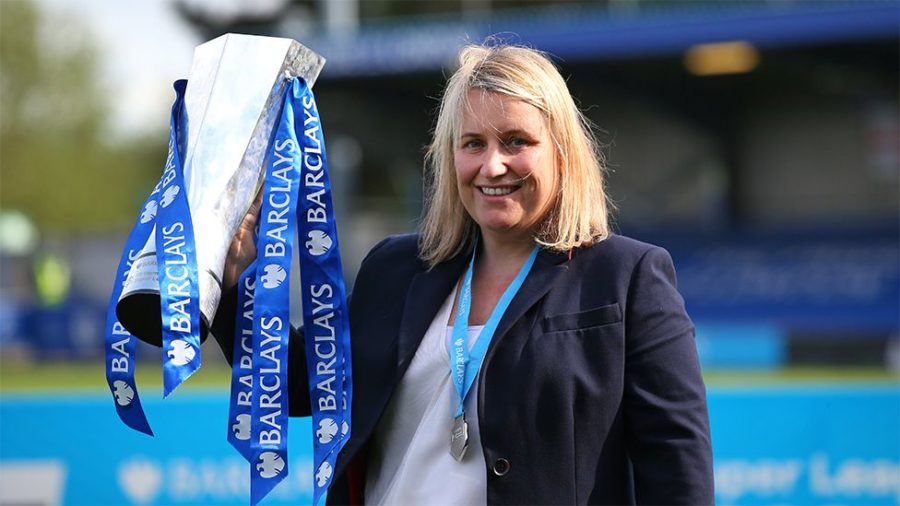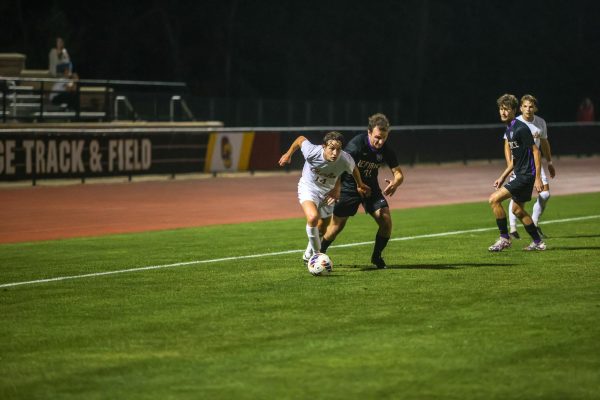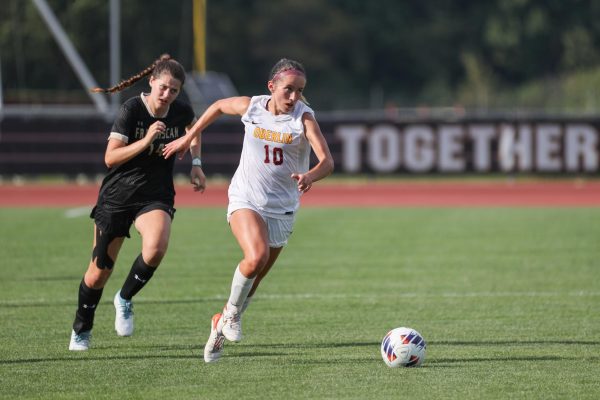Emma Hayes, Making History in Women’s Championship League
Emma Hayes, manager and coach of the Chelsea Football Club women’s team.
Emma Hayes, manager and coach of the Chelsea Football Club women’s team, is widely credited for evolving the team throughout her years with the club and getting the best out of her players. The Chelsea Women’s executive has previously won the League Cup, retained the Football Association Women’s Super League title, and bid for the Champions League title against Barcelona in Gothenburg two weeks ago on May 16.
Although the Chelsea team lost 4–0, the game was still a historic one to watch. Had they won, Chelsea would have become the first English club since Arsenal in 2007 to win the tournament. Hayes however, still made history as the first female coach to reach the Women’s Championship League final in 12 years.
Fans believe that the reason the Chelsea Women’s team is the one of the greatest in England — and possibly even Europe — is primarily due to Hayes and her strength, passion, and perseverance when it comes to the game.
Long-time Chelsea fan and Oberlin Men’s Soccer player, College third-year Ryan Kim, says that Hayes has done a phenomenal job and inspires him everyday as a player.
“She’s shown that women can do just as well or even better than men as the manager of a top club in Europe,” he said. “She without a doubt proved that women should be getting the same opportunities to coach as men. She led them to a great season. They won their domestic league title, league cup, and were a finalist in the Champions League final.”
College second-year Women’s Soccer player, Maia Minson, says that recently she’s heard a lot of buzz surrounding Hayes and the history she has made for women within the sport of soccer. While she hadn’t been a Chelsea fan until recently, she has been a fan of soccer for the past fifteen years.
“I was always more inclined to watch women’s soccer growing up because as a young girl these inspiring athletes taught me that women in sport can be strong, powerful, and aggressive while still being accepting of their femininity and womanhood and how these different identities intersect in my own life,” she said.
Minson is inspired by Hayes knowing that, as a woman, she had to fight for her success and acceptance within the soccer scene, despite adversity she has undoubtedly faced.
Kim says that when taking a closer look at women’s soccer leagues, you can see that the majority of the coaches are male. He believes that the leagues can do a better job of getting more women coaches involved.
“Teams have to be more willing to give more positions to women,” he said. “Women coaches have just as much knowledge about the game and bring a different type of experience, one that relates to their players more.”
In men’s soccer there has never been a female manager in the Premier League or Football League — or a female assistant manager, or Technical Director, or Head of Performance. And this problem persists in the women’s game too.
When Hayes led her team out in the Champions League final, she was the first woman in 12 years to do so. Only seven of the 24 teams that competed at the 2015 Women’s World Cup had female coaches and just nine at the 2019 tournament, which was won by Jill Ellis’s U.S. team.
Minson says that throughout her soccer career she has looked up to women in soccer with power, such as Hayes and those on the U.S. Women’s Soccer Team, because as a player she’s grown up watching and learning from powerful and tenacious women who gained so much success within their sport.
“I’m in awe of the fact that despite the obvious and measurable success they have had, they continue to fight for the respect within their earned roles that their male counterparts are accustomed to,” Minson said.
College third-year and Women’s Soccer player, Sophie Payne, says that the U.S. Women’s National Team has always been an inspiration to her as a player while growing up. She credits the example that team has set as the reason she has continued to play for this long.
“They taught me and many other young players that despite the stigma towards female players, there is always a way to defy those odds,” she said. “Players have played while they were pregnant, and as soon as they have their kid, they come back better than before. If that isn’t true dedication to their craft, then I don’t know what else is.”
Minson feels that Hayes and the women on the U.S. team are each playing their parts in the greater fight for greater women’s equality in sport. Whether it is Hayes fighting for respect within leadership positions in men’s soccer or the U.S. women’s team fighting for pay that is equal to the men, these women are all taking an active role in the fight for equality for women in sport, as they have been historically overshadowed by men.
Kim says that in order to see effective change in the sport, club owners and board members have to come together and have a conversation about giving women coaches and managers equal opportunities.
“The misconception that men can do things better than women is still around in the sport of soccer and needs to change,” he said. “Hayes is paving the way for other female managers to burst onto the scene and be successful, but to actually see a difference for women in soccer, it has to come from the executives to push for it.”
Similarly to Kim, Minson believes that everyone benefits when more female-identifying coaches and managers are incorporated into the soccer scene.
“This increase in visibility allows for women’s leadership roles in sport to become more normalized and accepted within the athletic community altogether,” she said. “If young players of all genders grow up seeing women as leaders in sport, it will become more and more normalized and respected in the future.”
Payne states that at the very least, there needs to be equal pay between all women’s and men’s professional sports — which is exactly what the U.S. Women’s Nationals team has been fighting to achieve for a long time.
“If the same amount of hard work is put into the respective sports, each side deserves the same compensation,” she said. “Playing any sport at a professional level requires a great amount of time and effort. Women deserve the same amount of compensation, opportunities, and respect as men do.”








